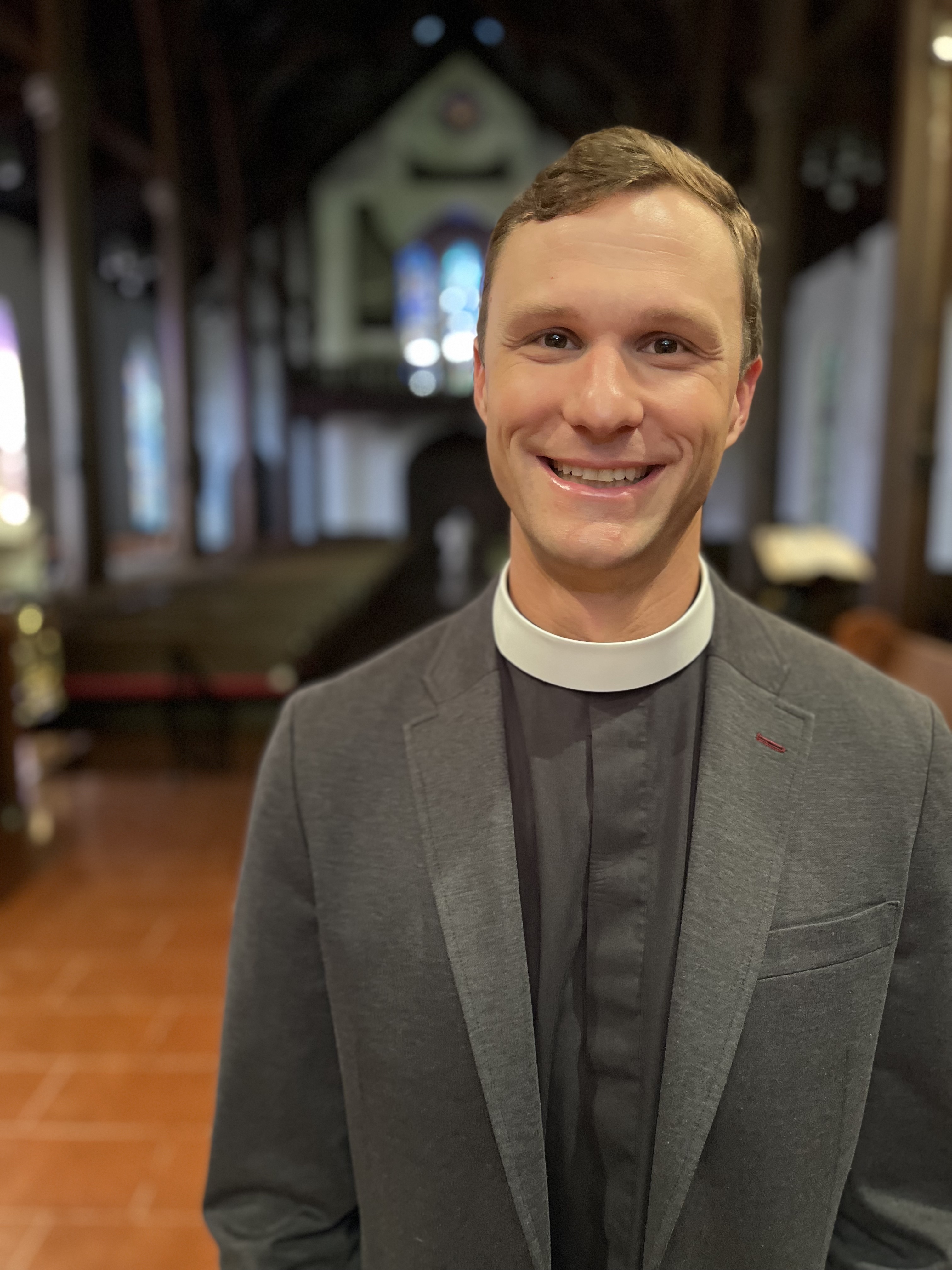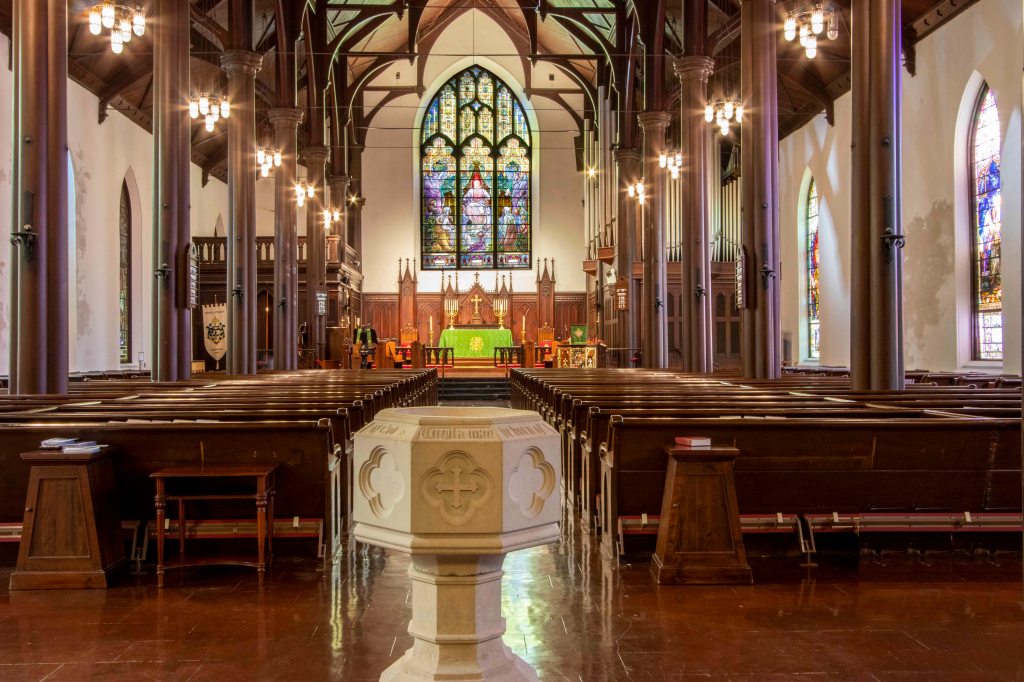Sixteenth Sunday after Pentecost
September 12, 2021
Mark 8:27-38
Kids reach this age when all they ask is “why?” It’s a sign of their natural curiosity, wanting to understand the world around them. For instance, they might ask; “why do birds have wings?” “So they can fly.” “Why do they fly?” “Because that’s how they move around.” “Why do they have to move around?” “That’s how they hunt for food.” “Why do they hunt for food?” I mean, it’s cute until it gets super annoying. At some point, you end up saying, “I don’t know why, it just is!”
Like peeling apart the layers of an onion, each question creates a new question. Jesus asks his disciples, “who do people say that I am?” And they answered him, “John the Baptist; and others, Elijah, and still others, one of the prophets.” He asked them, “But who do you say that I am?” Peter answered him, “You are the Messiah.” (Mark 8:27-29). All very well and good. But each question should create a new question. “What is the Messiah? What does that mean? What does a Messiah do?” Peter’s simple answer, that Jesus is the Messiah, opens up a whole new questionable can of worms.
“Messiah” is a Hebrew word that means “the anointed one.” Translated into Greek, “Messiah” becomes “Christos” or “Christ.” So Messiah and Christ are the same words in different languages, tomato tomato. The Anointed One. Alright, so my questions are pretty basic. Who anointed him? How was he anointed? What does anointing even mean?
And even if we get to the pretty basic answer, “well, God anoints, God picks the Messiah, the Christ,” that opens up a whole new set of questions. “Wait a minute, I thought Jesus was God. So how is God anointing God as the Messiah, the Christ. Why would God have to anoint himself? And if God is who we say God is, then why would God actually go to the trouble of picking someone, or himself, to be a Messiah?” If you think childrens’ questions are annoying, you haven’t spent much time with theologians. One question creates a whole new set of questions.
So today I will not answer all your questions, but I do hope to lay out some of the framework for how to think about God and to point out what I think are the most important questions about God, the Messiah, the Christ, Jesus, the Holy Spirit, and all of that.
So, “who is God?” We usually answer by attaching a string of descriptions to the name. God is the Lord Almighty, the King of Israel. God is the One who created the world. One theologian put it this way – “God is whoever raised Jesus from the dead” (Robert Jenson). We can also answer the question of God’s identity through negative answers. The Lord God is not Zeus, is not Baal, is not any of the other gods that humans have worshiped though they do not exist. There is a very real sense here that we cannot fully answer the question of God’s identity. Though we can hint at it, though we know it in our guts, our human speech just can’t fully answer the question.
But I want to peel back the onion another layer. What is God? Usually we get the boilerplate response – God is all good, God is all knowing, God is all powerful. There’s some utility in that answer, but personally, I find it awfully skimpy. Usually because we humans are defining goodness, knowledge, and power. And I’ve been around long enough to know that we can’t always trust what humans think. And especially on this twenty year anniversary of that terrible day in September 2001, those answers don’t seem to stack up. If God knew what was going to happen, if God could stop what was going to happen, and if stopping what happened would have been good, then how did it happen after all? See, the problem is that we are defining God and setting God up for failure in our sight.
And then we get to one layer more. The very core of the onion. What’s all this Trinity business? How is God Three and One all at the same time? We’ve come up with all sorts of analogies, most of them bad. God as Trinity is like a three leaf clover, three petals but one plant. God as Trinity is like an egg – shell, yolk, and white. God as Trinity is like water – liquid water, steam as gas, ice as solid. What I don’t like about all these is that we are squeezing God into something that we can conceive. We are shrinking God to fit our minds. We are putting the limits on God. And this is not good for us. It makes Christianity into a philosophical puzzle instead of the living, breathing way of life that it actually is.
And that’s my point. Not that questions are bad, but the whole premise seems out of whack. Why should I, a simple human being, made of dust, be asking questions of God? How dare I, a sinner, lay claim to knowledge that is far beyond me? What makes me think that I, one bound for the grave, can even wrap my mind around One who is eternal?
In a way, this gospel passages is the example of how this life of discipleship ought to work. Jesus asks questions of us, not the other way around. Jesus asks Peter, “who do you say that I am?” And then notice what happens. Peter gets the answer right – Jesus is the Messiah – but then Peter assumes he know what it means to be the Messiah. Surely the Messiah of God doesn’t die on a cross! So Peter presumes to take Jesus aside and dictate the terms of Messiahship. The fool! Telling God how God ought to be behave.
And we are that fool! Whenever we try to tell God what to do, or how to behave, or what it means to be God, we ought to be pulled aside and straightened out by Jesus. Not that questions are bad, not that theological study is wrong, not that curiosity is sinful. But every question we ask about God should come with the assumption that we will never fully know the answer in this mortal life. That doesn’t mean we shouldn’t ask. That doesn’t mean God doesn’t care. But it does mean that we shouldn’t be so proud as to dictate the terms of the relationship. We must assume that we will never fully comprehend God because God is eternal and we are not. Jesus is the Messiah, the Christ, the Anointed One, and we are not. We are sinners and yet God redeems us. We are mortal, made of dust, and yet God rises us to new life even in the midst of death. Like an exasperated parents answering their petulant child, I have come to believe that it just is.
No trite analogies, no clever answers, but simply the sheer, overwhelming presence of the Lord God who reigns over us as Jesus the Christ, the Messiah, the King of kings and Lord of lords. And once we stop talking, once we stop going on and on with our questions, then we can finally hear the questions that God is asking of us. “Who do you say that I am?”
And our answer will not be given in words alone. When Jesus asks who we say he is, the answer will be given in how we live our lives. We will answer that Jesus is the Messiah by loving our neighbors as ourselves. We will answer that Jesus is the Messiah by giving ourselves to a life of worship and prayer. We will answer that Jesus is the Messiah by listening for the voice of the Holy Spirit, guiding our lives. We, as the children, can stop asking the questions and start listening for the questions being asked of us. How will we live? How will we follow Jesus? How will we love? Who do you say God is?






Leave a comment